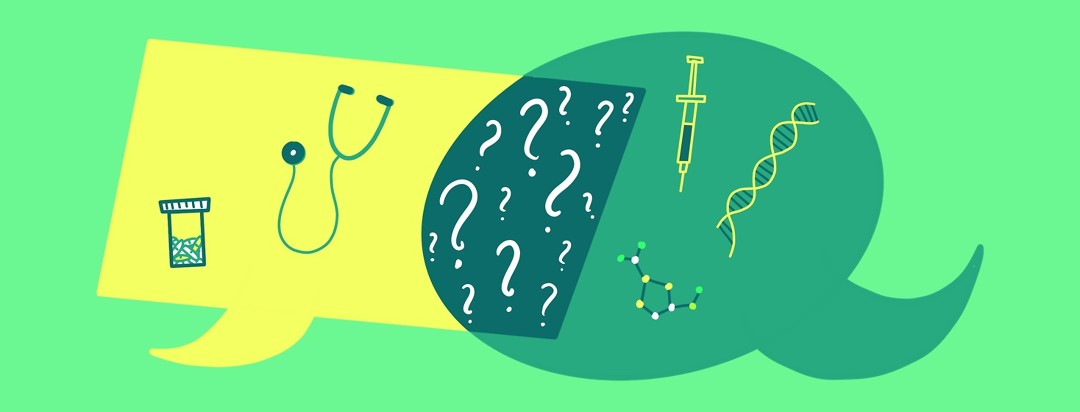The Language of Cancer -- Part 2
Learning you have cancer is one of the biggest shocks you will experience in your life. And, while you are still reeling from the news, you are often being bombarded with terms you’ve never before heard. We hope that this list, along with those in a previous post, will help give you some clarity and understanding.
Palliative care is not hospice care
Your healthcare provider may recommend that you seek palliative care. Do not despair if this is the case! Palliative care is a relatively new field of study that addresses the needs of patients with serious illnesses. A specially-trained team of doctors, nurses, and other professionals work together with your oncologist to provide an extra layer of support to both patients and their families.
Unlike hospice care, palliative care is appropriate for patients of all ages and at all stages of disease. It is provided along with curative treatment.
In contrast, hospice is recommended for patients near the end of their lives. In order to go into a hospice program, the patient agrees to quit undergoing curative treatments and focus instead on comfort care and quality of life. Like palliative care, hospice addresses the physical, spiritual, and emotional care of both patients and family.
Tumor testing
A relatively new and very important test goes by a number of different names, including precision medicine, genomic testing, and molecular testing. Whatever it is called, it is to your benefit to have it done.
Using tissue obtained from your biopsy, your tumor is explored for specific biomarkers (or, genomic abnormalities). The results will dictate your treatment options. For instance, if your tumor has EGFR, ROS1, ALK, or BRAF mutations, you may be given targeted therapies rather than chemotherapy to treat your cancer. These drugs, which are pills that you take at home rather than chemicals infused into your veins, are designed to kill only the mutated cells. Chemotherapy, on the other hand, is indiscriminate and kills good and bad cells.
While there are many mutations, there are currently targeted therapies available for only a few of them. So, it is entirely possible that your tumor will not have any mutations for which there are currently treatments. But researchers are hard at work so just because there is no targeted treatment available today does not mean there will not be one tomorrow for your tumor type.
There are also liquid biopsies available which may provide information about molecular abnormalities. These tests reduce the need for actual tumor tissue. The technique is new and exciting, but not all doctors are convinced they are where they need to be to accurately determine genomic mutations that a patient’s tumor might have.
Hot spot
Your oncologist may mention “hot spots” found on your PET (positron emission tomography) scan. These refer to abnormal cells that absorbed a lot of the tracer material that was used for the scan. A hot spot does not absolutely indicate a malignancy. Other diseases, such as infections, can also show up as hot spots on the PET scan.
Port
If you do not have a genomic mutation for which there are pills available, you will likely be given chemotherapy or immunotherapy intravenously. If this is the case, your doctor may recommend that you get a port.
Rather than receiving your chemical treatments through the veins in your arm, you can get your drugs infused through a port. A port is a flexible tube that is surgically inserted into a vein in your chest. Not only will the port save the veins in your arms, it usually requires only one “stick” (attempt at accessing the vein) and makes it easier for your healthcare team to give intravenous medications, give IV fluids, and take blood samples.
What terms are you unsure about?
Let us know below if there are any other words or terms related to your cancer care that are confusing to you. We will do our best to explain them using laymen's terms.

Join the conversation